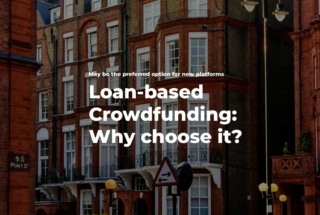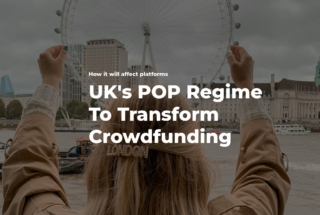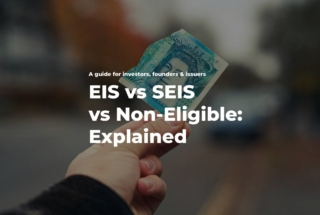How War in Ukraine Affects European Crowdfunding and Other Markets
No time to read? Let AI give you a quick summary of this article.
As the Russian-Ukrainian war continues, the world imposes more sanctions on the Russian government to condemn the aggressive behavior and criminal acts of the invader-country. But the sanctions don’t come cheap and have an economic effect on local and international businesses in Europe.
What you will learn in this post:
The effect on Baltic countries
The Baltic states were the first to get affected as they are the closest to the border.
In Latvia, a peer-to-peer lending platform Mintos reported that 15% of their investment portfolio in Russia is locked1 and the cooperation with 7 lending firms is frozen. Now, borrowers can’t make repayments for loans even if they have the money and the ability to do so due to the blocked EUR and USD transactions.
Mintos has also indicated the increased interest rates for loans on the platform from 8.6% in January to 10.6% in March while some lending firms started offering loans for 13 – 16%.
With offices in Lithuania and Croatia, PeerBerry, an alternative investment marketplace, says that their partners start repayments from the EUR 8 million reserve2 because collecting money from borrowers to repay obligations within 60 days is temporarily impossible. The entire lending portfolio in Ukraine and Russian is stuck until there’s a way to transfer the funds.
The global impact of war on the European market
It appears that platforms which are working with the Ukrainian or Russian customers are currently at risk because of the immediate restrictions and challenges in these countries or even default of the local businesses.
However, with the international businesses leaving the Russian market there’s also a global threat to certain sectors and industries including but not limited to:
- Oil and gas
- Energy
- Food & Agriculture
- Metal
Energy sector
Europe was one of the key markets of the Russian energy exports3 with 49% of crude oil and condensate, 74% of natural gas, 32% of coal in 2021 compared to Asia and Oceania and the rest of the world.
With the new sanctions, countries are now looking for ways to diversify and access energy products. While the European 2030 – 2050 green mission4 remains the same, countries are now also looking for new partnerships in the United Arab Republic including Qatar5 and Saudi Arabia6.
Apart from that, countries like France and the Netherlands expressed interest in expanding their nuclear power plants7 while Germany was shutting theirs down. With 40% of European energy consumption in households, it’s difficult to replace the rest of the 60% needed with green energy only.
Food & Agriculture
Ukraine and Russia are some of the biggest exporters of food8 to Europe with Ukraine exporting 8% of wheat and 13% of maize and Russia exporting 18% of wheat and 39% of rapeseed oil.
The effects of the limited supply of food from these countries may lead to increased prices9 and negatively affect the world’s hunger rates, especially in poor countries.
Metal sector
The heavy metallurgy production and steel export in Ukraine is paused due to the biggest cities specializing in this sector having been affected by war. Ukraine was exporting steel to Poland, Italy, the UK10 and in overall 120 countries worldwide. Because of war, many supply chains have been frozen or destroyed.
Russia is the world’s 4th largest supplier of steel11 as well as nickel, copper, platinum and palladium. But with the sanctions increasing daily, the world is likely to start looking for other ways of getting the metal products.
Steel is heavily used in construction, so at least in the closest countries, the real estate development prices may increase.
Other sectors
Pretty much every sector is affected now. Many international companies have stopped working with the Russian market either permanently or temporarily.
And speaking of those who didn’t want to burn bridges, the limits of the payment processors such as PayPal and card issuers such as Visa and MasterCard blocked any online purchases including games or software.
Luckily, the IT business is doing comparatively well, at least, in Ukraine. Also, thanks to COVID, development companies have already gotten used to working remotely and delivering good results.
How war impacts the crowdfunding and fintech sector
Crowdfunding platforms across the globe have already helped financing various volunteer and humanitarian missions in Ukraine. To name a few, GoFundMe, Kickstarter and Crowdfunder are among donation crowdfunding platforms that have supported Ukraine.
If we are talking about P2P lending marketplaces or equity crowdfunding platforms either for startup financing or real estate, there may be new opportunities in certain niches.
The global effect of the so-called biggest war in Europe after World War II is definitely increasing traction for ESG financing, Agriculture, Oil and Gas, Metallurgy and other sectors.
For existing investment platforms that haven’t diversified their offerings, this may be a good opportunity to gain market share and offer a new asset class for investors. It may also be a great time to launch your own crowdfunding platform to enter the market early.
At LenderKit, we offer crowdfunding software solutions for young and established investment businesses worldwide. Our white-label investment software is highly customisable and is tailored to European and US regulations.
With plenty of features offered out-of-box, you can launch your investment marketplace quickly and request customizations of the front-end and back-end as you grow your business.

Article sources:
- Two weeks in: the Russian-Ukrainian war and the status from Mintos | Mintos Blog
- Partners start repayments from the EUR 8 million reserve
- Russian energy exports
- The European Green Deal - European Commission
- EU is seeking alternatives to break free from Russian fossil fuels amid soaring prices | Euronews
- Saudi Arabia
- Nuclear power plants
- Exporters of food
- Ukraine invasion may lead to worldwide food crisis, warns UN | Ukraine | The Guardian
- PDF (https://legacy.trade.gov/steel/countries/pdfs/2018/annual/exports-ukraine.pdf)
- How will the Russia-Ukraine war impact UK steel prices?



